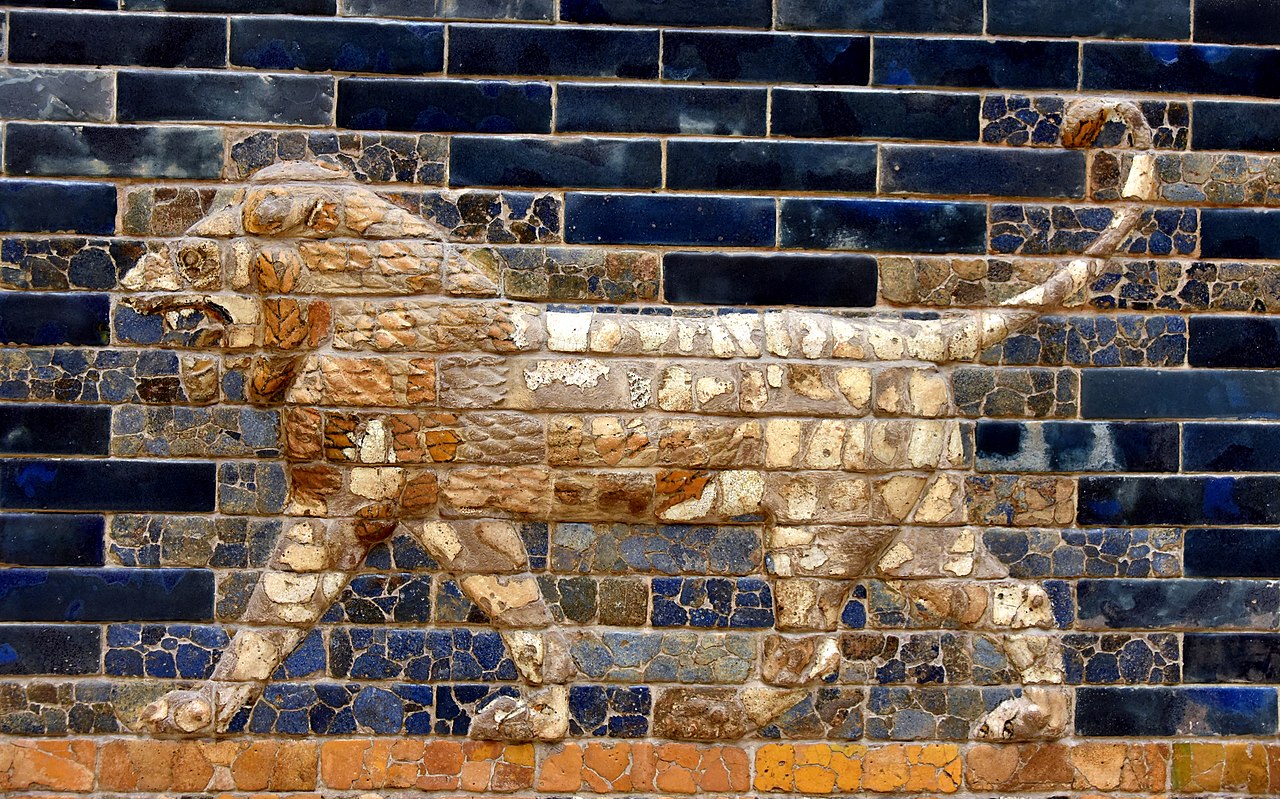Nebuchadnezzar, king of Babylon, sent an army against Jerusalem to punish Jehoiakim, king of Judah. Nebuchadnezzar was angry because, after three years of paying tribute, Jehoiakim had rebelled against the Babylonian.
King Jehoiakim died during the siege of Jerusalem and was succeeded by his son, the 18-year-old Jehoiachin. The new king surrendered to Nebuchadnezzar after resisting for three months. Jehoiachin, his mother, his servants, and the officials of his court were exiled to Babyon. Nebuchadnezzar appointed Mattaniah, the 21-year-old uncle of Jehoiachin, to be the new king and changed his name to Zedekiah.
In the ninth year of his reign, Zedekiah rebelled against Nebuchadnezzar, who again came against Jerusalem, besieged it, and built towers all around it. After two years, the walls of the city were breached.
Zedekiah escaped through the palace garden but was pursued and captured near Jericho. He was then taken to Riblah, to the presence of Nebuchadnezzar. The Babylonians slaughtered Zedekiah’s sons before his eyes and then put his eyes out, chained him in bronze fetters, and took him to Babylon.
With your help, My Jewish Learning can provide endless opportunities for learning, connection and discovery.
Nebuzaradan, captain of the guards of Nebuchadnezzar, came to Jerusalem and burned down the Temple, the king’s palace, and all the houses. The walls of the city were torn down. The survivors, with the exception of the poorest of the land, were taken into exile in Babylon.
Nebuchadnezzar named Gedaliah son of Ahikam to be the governor of the conquered kingdom. A few months later, Gedaliah was murdered by Ishmael, one of the captains of the defeated Judean army and a member of the royal family of Judah.
Nebuchadnezzar ordered that four promising boys from the Israelites exiled in Babylon be selected. The chosen boys–Daniel, Hananiah, Mishael, and Azariah– were given a three-year course of instruction to prepare them for service in the Babylonian royal court. After the three years were over, the king examined them personally and found them to be ten times better than all the magicians and astrologers in the kingdom.
The King’s Dreams
One night, Nebuchadnezzar had a disturbing dream, but could not recall it when he woke up. He summoned the magicians to his presence and ordered them to tell him the dream and its interpretation. The magicians replied, “There is no one on earth who can
satisfy the king’s demand, for great king or ruler–none has ever asked such a thing of any magician, exorcist, or Chaldean. The thing asked by the king is difficult; there is no one who can tell it to the king except the gods whose abode is not among mortals (Daniel 2:10–11).”
The king flew into a rage and ordered Arioch, the captain of the king’s guard, to kill all the wise men of Babylon. When Arioch came to kill him, Daniel asked the captain for an explanation, and when he heard the king’s demand, he asked to be given some time. That night, the king’s dream was revealed to Daniel in a vision.
In the morning, he went to Arioch and said to him, “Do not do away with the wise men of Babylon; bring me to the king and I will tell the king the meaning (Daniel 2:24)!”
Daniel, brought to the presence of Nebuchadnezzar, told the king that he had dreamt of a great statue, its head made of gold, its breast and arms of silver, its thighs of brass, its legs of iron, and its feet partly of iron and partly of clay. A thrown stone, which broke the statue in small pieces that were blown away by the wind, grew into a great mountain that filled the whole earth.
Daniel explained that the head of gold was Nebuchadnezzar himself and that the rest of the statue, made of different materials, represented successive kingdoms that would be swept away by the kingdom of God, which would last forever. The astonished king acknowledged the supremacy of God and appointed Daniel governor of the province of Babylon and head of all the wise men in the kingdom.
Sometime later, the king made a large idol of gold and invited all the princes, governors, and leading personalities of the kingdom to come to the dedication of the image. A herald proclaimed that all should fall down and worship the statue upon hearing the sound of musical instruments. Shadrach, Meshach, and Abednego refused to worship the golden idol.
Nebuchadnezzar had the three men brought to him and threatened that, if they continued to refuse to worship the idol, he would have them thrown into a fiery furnace. The three men refused and were thrown into the furnace, which was so hot that it burned to death the men who pushed them in. An angel came and protected the three men from injury. The amazed king told them to come out, recognized the supremacy of God, and decreed that nobody should dare speak against God.
The king had another dream. This time he dreamt of a tree of great height with beautiful foliage and abundant fruit. A holy man ordered the tree to be cut down, leaving just the stump and the roots.
Daniel, called to interpret the dream, told Nebuchadnezzar that the king was the tree, and that God would make him eat grass as an animal and live with the beasts of the field. A year later, while the king was boasting of his power, a voice from heaven told him that the kingdom had departed from him and that he would dwell with the beasts of the field and eat grass as oxen do. Later when the king had recovered his sanity, he praised God and was restored to his former exalted position.
According to the Bible, Nebuchadnezzar was succeeded by his son Belshazzar, during whose reign Babylon fell to the Persians. Nebuchadnezzar was also called Nebuchadrezzar (Jeremiah 21:2).
Reprinted with permission from Who’s Who in the Hebrew Bible (The Jewish Publication Society).



